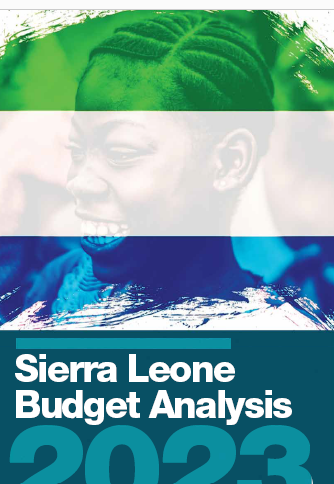Unboxing The 2023 Budget
The Sierra Leone 2023 budget will likely faces numerous challenges that limit the government’s ability to generate revenue to fund its annual spending plan, including the lingering effects of the COVID-19 pandemic, the ongoing Ukrainian crisis, and the escalating risks of climate change.
The lingering effects of the situation have caused a sharp and synchronized slowdown in global economic activity, with the October edition of the International Monetary Fund’s World Economic Outlook projecting global growth of 2.7% in 2023, down from 3.2% in 2022, and global inflation of 6.5% in 2023, down from 8.8% in 2022. These factors pose significant risks to living standards and confer more hardship on the poor and vulnerable citizens.
The 2023 budget theme is “Addressing the needs of the vulnerable in the context of multiple crises.” As the government struggles to implement the country’s medium-term outlook, it examines the current projections, which indicate that growth will not return to pre-pandemic levels until 2025, and that it will only reach 3.1% in 2023. Inflation is expected to decline gradually to 23.7% in 2023. However, it is expected to fall even further by 2025, to 14.3%.
This year, the government plans to alleviate the suffering of average citizens by prioritizing allocation toward increased food production, education, and health services, investing in infrastructure, and improving the business environment in order to promote sustainable, inclusive, and greener growth in order to create jobs and fund the upcoming general elections in 2023.
The total budget allocation for FY 2023 is NLe 15.09bn, and revenue of NLe 13.15 billion, which leaves a deficit of NLe 1.95 billion. The government expects NLe9.35 billion in domestic revenue (14% of GDP) in 2023; income taxes (NLe3.7 billion) continue to contribute the lion’s share of total projected domestic revenue, while road user charges (NLe197.9 million) contribute the least. Furthermore, grants are expected to contribute a total of NLe3.8 billion (5.7% of GDP) to the overall revenue of NLe13.15 billion, with the World Bank contributing NLe1.8 billion in budget support and NLe2.0 billion in project grants as part of the grants.
The total expenditure and net lending are projected to be NLe15.1 billion (22.7% of GDP) in 2023, up from NLe13.7 billion (25.7% of GDP) in 2022. Recurrent expenditure will be NLe10.9 billion, capital expenditure will be NLe4.2 billion, and the budget deficit, including grants, will be NLe1.96 billion (2.9% of GDP), financed primarily through domestic sources.
